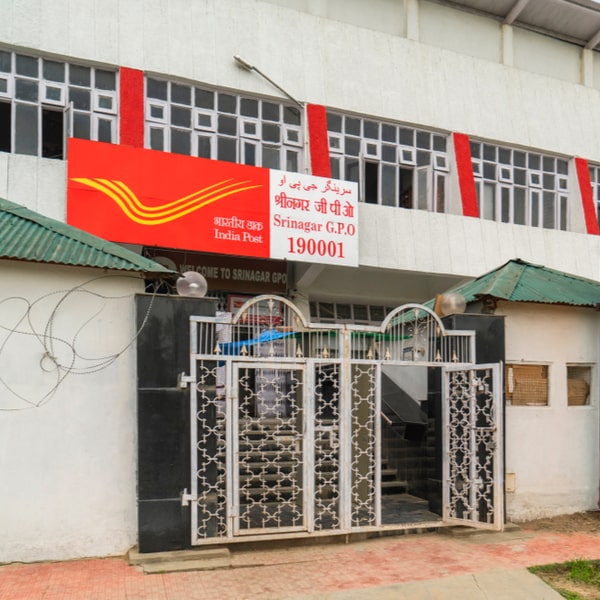Coronavirus Lockdown 2.0 Guidelines – All You Need to Know
We are done with the first round of lockdown that the country went through in the face of spread of Covid-19. The Prime Minister announced that India would move into a 2nd round of lockdown till 3rd May to further contain the spread of the virus.
But lockdown 2.0 comes with relaxations to allow economic activities in some sectors to resume, especially help those involved in agriculture and daily wage earners.
We bring to you a gist of guidelines for Lockdown 2.0.
But these relaxations come with certain attached conditions.
- The below mentioned activities are allowed post April 20.
- These will be operationalised by state/UTs/district authorities based on compliance with existing guidelines.
- These relaxations will not be applicable to those areas designated as hotspot zones.
- If the activities permitted result in increased COVID cases, the relaxation may be rolled back.
The Guidelines issued by Ministry of Home Affairs for various sectors are:
Guidelines for Hotspot or the Containment Areas
- These hotspots or clusters will be determined by the Health Ministry
- In hotspots, containment zones will be decided and demarcated by States/Union Territories or Local District Administration.
- In containment zones, the relaxations will not be applicable post April 20.
- Strict perimeter control will be put in place to ensure that no unchecked inward/outward movement is possible except for essential services.
Guidelines for all Public Spaces
- Wearing of face covers or masks and social distancing is mandatory for all individuals.
- Gathering of more than 5 people in public is not allowed
- Occasions such as marriages and funerals will be regulated by District Magistrates.
- Spitting in public is now a punishable with fine.
- Strict ban on sale of products like alcohol, gutka, tobacco, etc
Industrial Establishments allowed after 20th April
- Industries in rural areas, SEZs, Industrial townships, industrial estates and export-oriented units.
- Manufacturing units of essential goods and IT Hardware.
- Units of food processing and jute industries will also remain open.
- Oil and gas refineries & Coal and mineral production
- Brick producing kilns in rural areas
- Construction activities including roads, irrigation, renewable energy projects, construction projects in municipalities (only where workers are available on site).
Commercial Services allowed after 20th April
- Print and electronic media
- IT & ITeS sectors with up to 50% strength
- E-Commerce companies, cold storage and warehousing, courier services
- Private security and facility management services required at office and residential complexes
- Data and call centres for Govt activities, CSC’s at Panchayat level
- Services provided by self-employed individuals like electricians, plumbers, IT repairs, carpenters, etc.
- Establishments required for quarantine facilities
Financial Services allowed after 20th April
- RBI and RBI regulated financial markets and entities
- Banks, ATMs and Cash management agencies
- IT vendors for banking operations
- SEBI and Capital and debt markets
- IRDAI and Insurance companies
Social Sector Services that can remain Operational
- Operation of homes for mentally challenged, destitute, senior citizens, children, widows, women, etc.
- Observation homes, places of safety for juveniles and aftercare homes.
- Disbursement of Social security pensions and provident fund service provided EPFO
- Operation of Anganwadis – Food and other nutritional supplies to be door delivered once in 15 days.
Health Services allowed after 20th April
- Hospitals, Nursing homes, telemedicine facilities, dispensaries, medical shops
- Medical research, COVID-related labs and collection centres
- Veterinary hospitals, dispensaries, clinics, vaccines and sale of medicines
- Manufacturing units of medical devices and construction of medical infrastructure
- Movement of all medical staff, nurses, para-medical personnel, lab -technicians, scientists, etc
Cargo Services that are allowed after 20th April
- Intra and Inter state transportation of cargo through air, rail, road, etc.
- Carrier drivers allowed with 2 drivers and 1 helper.
- Empty vehicles can ply for pick-up or after delivery of goods.
Services essential for movement provision of essential services and goods
- Supply chain required for production and movement of essential goods, like wholesale, retail, shops/carts for essential goods.
- Large brick and mortar shops
- Truck repair shops and dhabas along highways
- Movement of staff and labourers for essential services
Public Utilities Services Allowed post 20th April
- Operations of Oil and Gas sector
- Postal services, including post offices.
- Operations of utilities in water, sanitation and waste management sectors, at municipal/ local body levels in States and UTs.
- Telecommunications and Internet services.
- Generation and Transmission of power
MNREGA Works
- Works under MNREGA to commence post 20th April, with importance to irrigation and water conservation projects (Workers to use masks and maintain social distancing)
Agriculture Services Allowed post 20th April
- Farming operations in field and agencies allowed in procurement of farm produce
- Mandis operated by the Agriculture Produce Market Committee (APMC)
- Custom Hiring Centres and Repair facilities for farm machinery
- Manufacturing, distribution and retail of fertilizers, pesticides and seeds.
- Movement (inter and intra State) of harvesting and sowing-related machines like combined harvester and other agriculture/ horticulture implements.
- Coffee, tea and rubber plantations allowed with 50% workers
Fisheries and Animal Husbandry Activities
- Fishing and related activities like processing and sale to remain open
- Commercial aquaria and hatcheries
- Distribution and sale of milk and milk products and activities at animal shelter homes
Guidelines for Movement of persons
- Private vehicles for medical emergency services and procurement of essential goods
In these cases, only one person allowed in the back seat other than the driver. No pillion rider allowed on two-wheelers.
- All personnel travelling to and back from work as allowed.
Guidelines for Workplaces allowed to operate after 20th April
- Adequate arrangements for temperature checks and sanitisation to be in place with social distancing to be followed
- Gap of one hour between shifts
- Restricted number of people in elevators
- Large meetings of over 10 people to be prohibited
- People over the age of 65 and those with kids under 5 years encouraged to work from home
These are the guidelines for general public and information on what sectors are allowed operations post 20th Apr. But activities as listed below will continue to be closed.
- Domestic and International Air travel
- Passenger transport including passenger trains, buses, metro, taxis and other means of inter-state travel except for medical and security purposes
- Hospitality services
- Educational institutions
- Industrial and commercial activities other than those specifically allowed
- Cinema Halls, gyms, malls, pools, entertainment parks, assembly halls, etc.
- All social, political, entertainment, religious, sports complexes and gatherings.